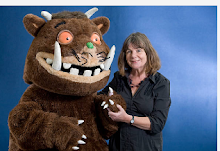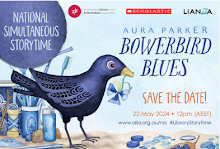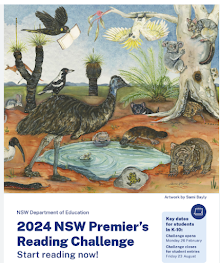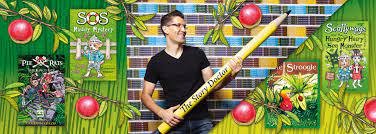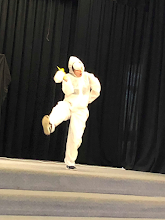Tuesday, May 11, 2021
Welcome to Term One 2021
Friday, October 23, 2020
Term Four
The Library
Program
Kindergarten
The students
will study the difference between fiction and nonfiction books. The pictures,
words and elements of both genres and the reason for reading them will be
examined.
Teaching the
difference between fiction and nonfiction requires students to understand the
difference between real and make-believe. Large-group and small-group
activities will give the students practice in identifying the different types
of books.
Each week
examples of both genres will be presented dealing with a particular theme.
Interactive digital activities related to the theme will also be included in
the program.
Stage One
In this
course of study, the students will learn the value of reading nonfiction
texts. The aim is to enable the students
to learn about the features of nonfiction texts and gather, discuss and reflect
upon new information.
Quality
nonfiction helps students to build their vocabulary. It also fosters critical
thinking and information-gathering skills.
A wide
variety of texts have been chosen to inform the students of the range of
quality nonfiction texts that are available in our library.
Stage Two
Visual
knowledge is understanding how visual elements such as line, colour, shape,
texture, space, symbols, pattern and composition create meaning.
The students
will study visual literacy in line with an author study of the work of Colin
Thompson.
They will
identify the following elements which are features of the work of the author:
· Happy endings
· Everyone winning
· Nonviolent resolution
· Imaginative and creative
· Challenging stereotypes
· Faith and hope
· Peace with the environment
Stage Three
The students
in stage three will study the text Good Selfie by Turia Pitt. The following
Booktopia review states:
Good
Selfie contains simple strategies to help kids and teens build self-confidence,
get through hard times and go after massive goals. It’s real, straight-talking
and funny and it's garnering incredible reviews the world over.
Inside
this beautifully illustrated and psychologist-reviewed book, Turia explores how
to:
·
build self-confidence and self-belief
·
get through hard times
·
re-frame the way you see your life and your challenges
·
set and get big goals
·
create a high-quality support crew
·
It’s basically a teen’s guide to a resilient mindset and leading their
best life.
Tuesday, February 11, 2020
Term One 2020
Premier’s Reading Challenge
- target audience
- characters
- message of the product (sweet or savoury)
- setting
- music
- dialogue
- slogans and logos
- hyperbole
Stage Three
Tuesday, September 17, 2019
The News In Term Four
Stage Two




